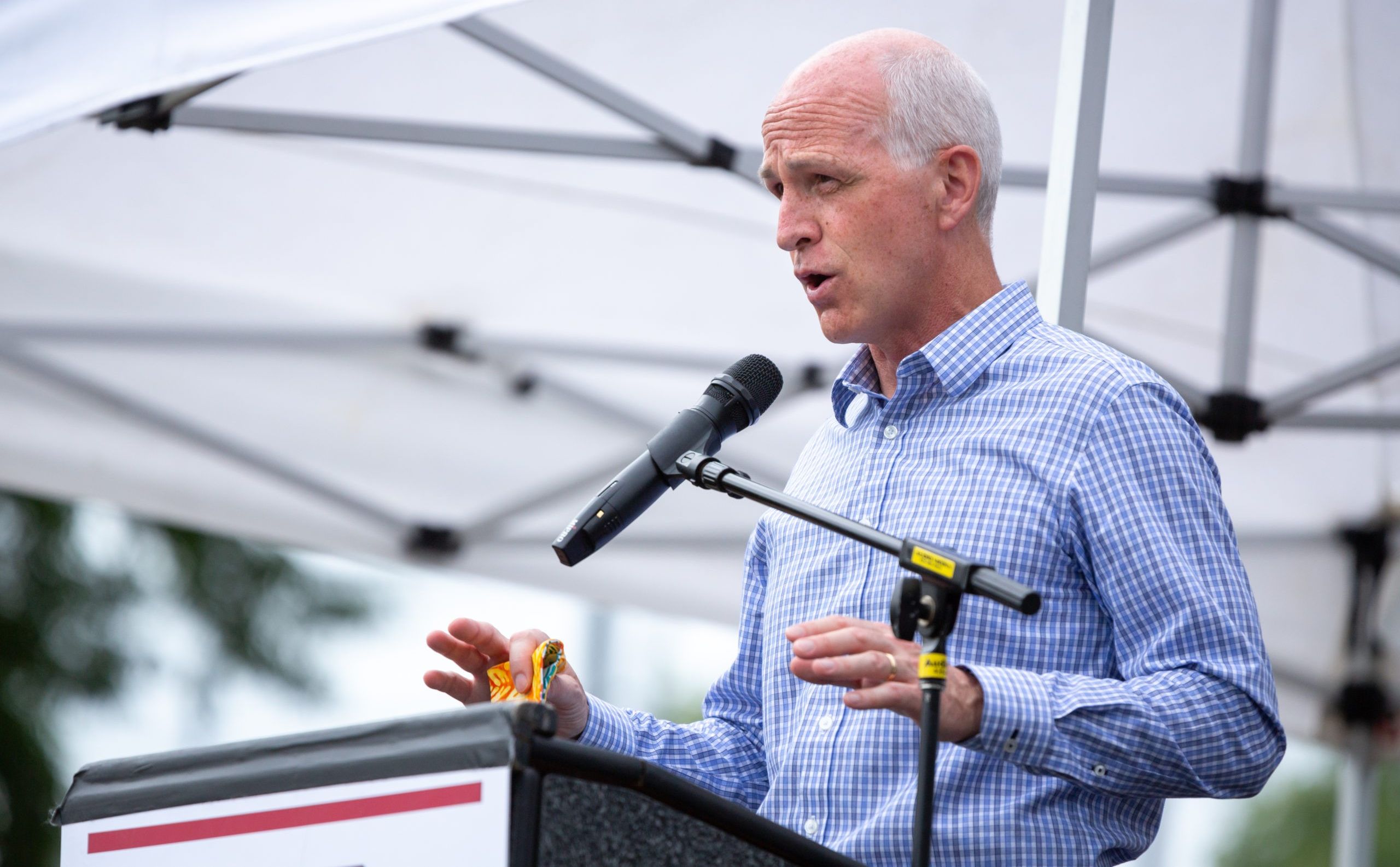Rep. Adam Smith (D-Wash.) offered a rare Democratic rebuke of the Biden administration’s rhetoric on the war in Ukraine during a House Armed Services Committee hearing on Wednesday.
Smith, the ranking member on the committee, was following up on questions from Rep. Matt Gaetz (R-Fla) to Celeste Wallander, assistant secretary of defense for international security affairs, on whether the administration considered the repatriation of Crimea and the Donbas as necessary for a Ukrainian victory.
“It's a fascinating world we live in because I actually agree with Mr. Gaetz on something around Ukrainian policy,” Smith said. “Realistically, Crimea is not coming back to Ukraine and we can absolutely win this war and absolutely make a difference even in that reality. We do not have to have Crimea to make it 1000% worth it to give Ukraine the money, okay? We need a sovereign democratic Ukraine that can survive.”
During her exchange with Gaetz, Wallander repeated the Biden administration refrain that it would be up to Kyiv to decide what constitutes a Ukrainian victory, and that Washington’s ultimate goal was to ensure “Russia’s strategic failure,” which includes “reinforcing the international law that borders cannot be changed by force.”
“I've heard this phrase over — ‘nothing about Ukraine without Ukraine.’ Forgive me. That is a ridiculous thing for any U.S. diplomat or person in U.S. policy to say,” Smith said. “We got partners all over the world and, yes, we listen to them, but when we're footing the bill, when we are spending so much money over there, we have a say.” Watch:
Smith, who has been a staunch supporter of continuing aid to Ukraine, made clear during his comments that approving the next tranche of funding for Kyiv was vital to accomplishing his goal of having a “sovereign democratic Ukraine that can survive.”
The congressman asked earlier in the hearing how Washington would handle the delicate situation of pushing Kyiv to negotiate and accept territorial concessions.
“What would you say is the scenario and the administration's position on negotiations? So we get them the aid, we stop Russia so that Russia cannot achieve their maximalist goals. I see risk if at that point we continue (...) to keep fighting because we got to get it all back.” he said. “I mean Ukraine should have pre-2014 borders, but what should happen, isn't the same as what can happen. How do you handle that discussion to get to a peace in Ukraine?”
Wallender responded that the administration would not force Ukraine to the negotiating table and that thinking that territorial concessions would placate Vladimir Putin misunderstood the Russian president’s goals.
“He's not after territory, he's not after Bakhmut or Avdiivka or even Odesa, he's after Ukraine,” she said.
As George Beebe of the Quincy Institute has argued, finding a way to end the war quickly is an essential step to upholding Kyiv’s democracy.
“It is a mistake to believe that Ukraine will emerge from the war as a strong and prospering democracy no matter how it ends or how long it takes. The longer it continues, the bleaker will be Ukraine’s future,” Beebe wrote in RS last August. “It is time to combine our defensive support for Ukraine — which is essential to preventing further Russian territorial gains and pushing the Kremlin toward negotiations — with a diplomatic offensive aimed at a compromise settlement. The sooner we do, the better off Ukraine will be.”
A growing group of congressional Republicans have expressed skepticism about the Biden administration’s policy, with some focusing on the lack of a clear mission or endgame. Smith’s comments mark the first time that a Biden congressional ally has conveyed similar misgivings about the administration’s strategy.
The national security supplemental that the Senate passed in February and includes approximately $60 billion in aid for Ukraine remains stalled in the House. Speaker Mike Johnson (R-La.) has said that his chamber will address the issue soon, though it is unlikely that the House will vote on the Senate bill. The Speaker has instead floated “important innovations” to address some of his caucus’ concerns, but what exactly those look like are unclear.
- Congress needs answers before sending more aid to Ukraine ›
- It’s all risk and little reward with cluster munitions for Ukraine ›
- Top House Dem: Party's embrace of hawks 'is a problem' | Responsible Statecraft ›
- Democrat, GOP Reps: Putin is tooling Trump around | Responsible Statecraft ›
- Lawmakers have an antidote for Washington's China panic | Responsible Statecraft ›
















